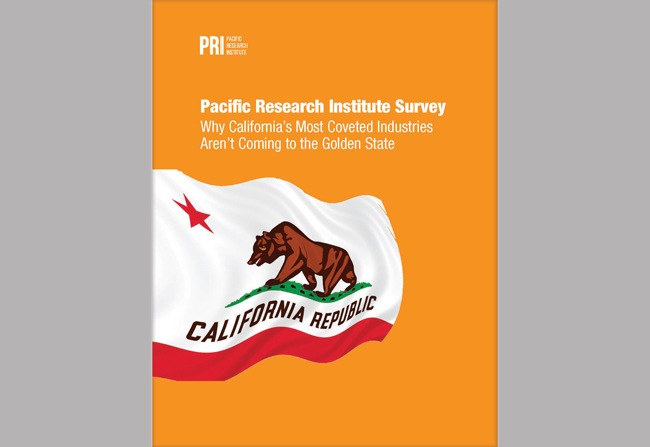By Glenn Minnis
Despite support from a few Republicans, a measure championed by Sen. Pat Leahy, D-VT, targeting health care costs did not make its way into the budget passed by Congress earlier this month.
The exclusion of the Creating and Restoring Equal Access to Equivalent Samples (CREATES) Act disappointed Leahy, but one economist says patients are better off without it.
Wayne Winegarden, a senior fellow in business and economics at Pacific Research Institute, says the bill would have placed more costs on large manufacturers of prescription drugs, harming their incentive to innovate.
“Economics 101 tells us that increased price for companies comes at the cost of more research,” Winegarden added.
“Here, patients would be the other big losers because their disease or illness is not going to be addressed with the same level of investment or study it might otherwise draw. That particularly holds true over the long haul, because with reduced innovation, any potential cost savings are almost certainly missed out on.”
Winegarden added that those concerns didn’t matter much to trial attorneys, who he said were salivating at the thought of all the increased litigation that would have almost certainly stemmed from such a system being enacted.
“CREATES is absolutely tilted in favor of more litigation,” he said. “You are definitely putting a limit on branded manufacturers and giving generic manufacturers incentive for more legal action. For all the things afflicting the health care system, putting these kind of monetary damages in place provides an incentive to generic drug makers to turn to legal action sooner rather than later, only making the overall situation much worse.”
Introduced by Leahy in 2016, the CREATES Act is touted as a bill that seeks to spur drug competition by allowing generic companies to sue branded ones for failing to provide them with samples needed to conduct federally mandated tests.
Those tests would seek to prove that their generic products are just as safe and effective as the name-brand pharmaceutical they are seeking to compete with.
Leahy is still hoping Congress will pass the bill.
The legislation would have also aimed to give the Federal Drug Administration more flexibility in the way it maintains safety standards and promotes innovation through the regulatory process known as Risk Evaluation and Mitigation Strategies (REMS).
To date, the FDA has reported receiving more than 100 inquiries from generic product developers claiming that they were unable to access brand-name samples needed to conduct generic product comparisons.
As for all the talk about the legislation being a potential goldmine for trial lawyers, a statement from Leahy’s office provided to Legal Newsline countered:
“CREATES gives a limited, tailored remedy for generic manufacturers to obtain a sample or negotiate a shared REMS from a brand-name manufacturer. It has several key limitations: Only eligible product developers may sue; the generic must prove that they sought a sample/entry into a shared REMS and were denied it; the brand can defend itself by showing the product is available elsewhere; the primary relief is injunctive, damages are available only if the court finds that the brand lacked a legitimate business justification for its conduct; and damages are capped, with the maximum being the revenue the brand earned on the drug during its period of delay.”
All across the country, Leahy said American families have personally lamented to him how the high cost of prescription drugs has now become their top health concern.
“When brand companies can drive up the price of drugs through predatory practices, patients suffer,” he added in the statement. “Illnesses worsen. Families, government programs, and other payers in the health care system ultimately bear those added, unnecessary costs.”
According to Leahy’s office, the Congressional Budget Office estimated that the CREATES Act would reduce federal spending by nearly $4 billion over a decade by saving on drug costs for the Medicare and Medicaid programs.
With more than 20 years of experience in the industry, Winegarden has heard all the arguments voiced in the debate before. He insists nothing advancing the CREATES Act agenda strikes him as being logical or fundamental to improving the overall health care system.
“We’re talking about a small percentage of medicines for a number of serious illnesses that could have serious side effects and need to be handled in a certain way,” he said.
“With the CREATES Act, you’re posing greater risks for patients without proper protocol. Who knows what suits can result from such a system? The idea of lowering the standard is quite concerning.”

